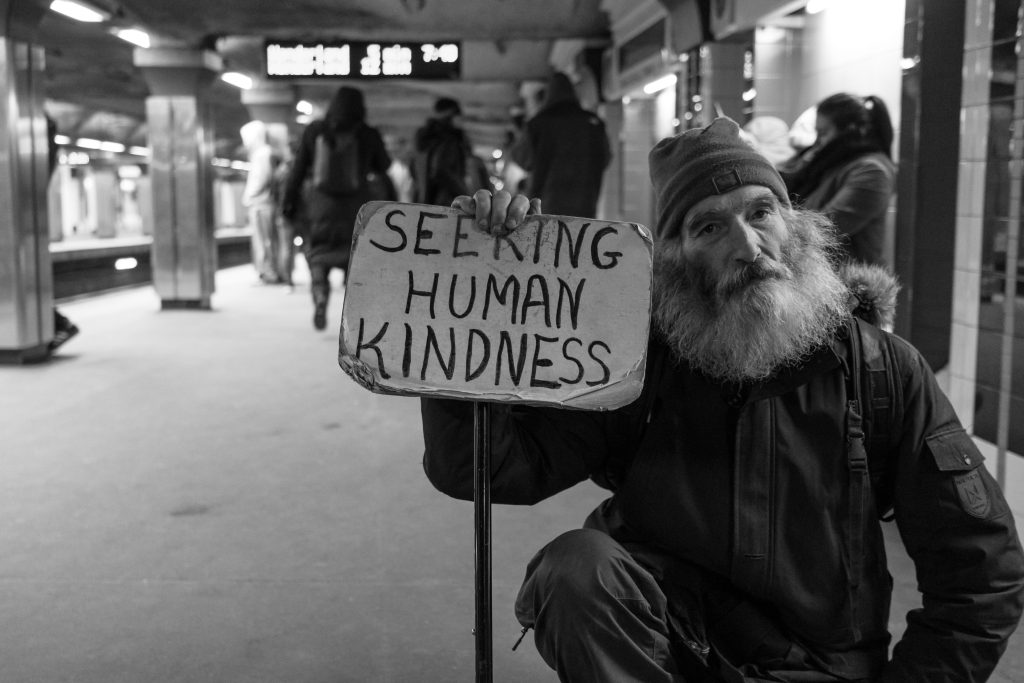
From 2003-09 there was a huge drop in homelessness in England due to the Homelessness Act of 2002, an act with the goal of addressing the crisis of consistently rising homelessness in England by extending government assistance to a larger portion of the homeless population. However, after 7 years of steadily falling, homelessness is on the rise again. Whilst the government has begun to address this with the ‘Everyone In’ strategy, it has not done nearly enough to alleviate the issues faced by the homeless population in day-to-day life.
2020 was a difficult year for everyone, however one often overlooked section of society had it harder than most. Over 280,000 people in England were homeless as of December 2019, with the fallout of Covid-19 thought to only increase this number to higher levels than seen in years. This is largely due to people primarily in the hospitality industry being laid off without furlough, and no longer being able to afford their living situation. As we enter 2021 with a new lockdown only just beginning, this fundamental human rights issue is larger than it has ever been with little media attention attached to it. Since 2016 there has been an increase of over 23,000 people to the now 280,000 that are homeless, with over 4,500 people rough sleeping on any given night across England. Despite this worrying increase, it is seldom mentioned in politics; it is often pushed to the back, as if it were a taboo topic, with the 2019 Conservative manifesto mentioning it only briefly. With Covid-19 cases rising across England, homelessness is a more pressing issue than ever before. The lack of safety that homeless people have just by virtue of being homeless has only increased with unavoidable exposure to the public. The extremity of the issue can be seen in the 50% increase in young people sleeping rough in London since last year – many of which have lost their housing due to ineligibility for furlough despite having lost all means of income. Government support for homelessness has increased since Covid-19, with the ‘Everyone In’ strategy being the largest portion of this. With 90% of homeless people reportedly being given a place to stay, this has undoubtedly saved lives. However, the scheme was ended after Lockdown 1 and never had any formal legislation attached to it. The government followed with the ‘Next Steps’ accommodation programme. This aims to assist more long-term solutions, which puts the UK government in the rare position to implement a level of infrastructure around preventing homelessness. This infrastructure could then be expanded in order to end rough sleeping permanently and, in turn, work towards solving the homelessness crisis for good.
For the fifth year in a row, homeless deaths have increased and are now at their highest since 2013, with the majority of these happening due to rough sleeping. The winter is the hardest period for rough sleepers due to often sub-zero temperatures. With many night shelters being closed due to the pandemic, and the number of homeless people ever-increasing, the number of people sleeping rough is at a record high despite government attempts to curb it. The government’s figure that 90% of rough sleepers are given a place to sleep has also been criticised, as it was published without any supporting data. The number of people rough sleeping is thought to be much higher than the estimated street counts that the government used. In fact, the government’s system was said to ‘not [be] a reliable system’ by Professor Glen Bramley of Heriot-Watt University. He goes on to say that due to the fast turnover of many people going in and out of homelessness, the ‘Everyone In’ scheme would never see the disappearance of homelessness as a whole. As such, going into a third lockdown will undoubtedly result in more people becoming homeless. Far more is needed from the government to support this sector of the population as we enter the harshest months of the year. We need to support the people that have not been able to source housing as well as those that will lose theirs in the coming months.
Whilst a spokesperson for the Ministry of Housing, Communities and Local Government has stated that ‘the government has taken unprecedented action to support the most vulnerable people in our society during the pandemic’, this is not necessarily enough. We are living through unique times, and whilst the actions that the government have undertaken may have been applaudable in a non-Covid-19 world, we need to support the homeless population more than we have previously. Whilst the government has initiated methods of help and support, it must now go above and beyond to tackle the crisis that it faces. We, the people, should not be content with the government’s approach to such an extensive human rights issue until this increased support is implemented for the homeless population.
Key Sources
https://www.mungos.org/publication/policy-briefing-rough-sleeping-in-england-looking-beyond-everyone-in/ https://www.theguardian.com/society/2020/aug/18/reports-of-rough-sleeping-in-uk-rose-sharply-during-lockdown
